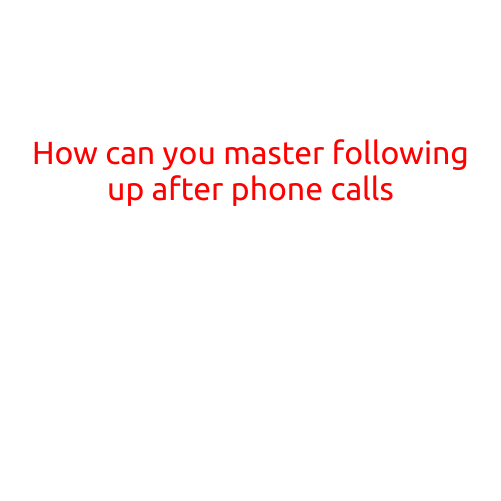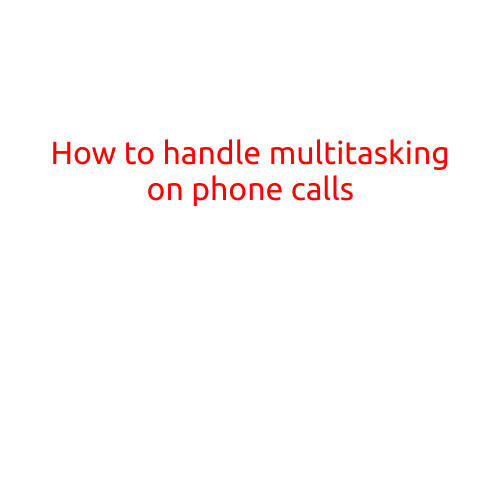
How Can You Master Following Up After Phone Calls?
In today’s fast-paced business world, making a phone call and ending it without follow-up can be a significant waste of time and effort. Following up after phone calls is an essential skill for any professional, as it enhances the chances of converting leads into customers, builds trust, and fosters lasting relationships.
However, many professionals struggle with the art of follow-up, often neglecting to do so or doing it too late. In this article, we’ll explore the importance of following up after phone calls and provide tips on how to master this critical skill.
Why is Following Up After Phone Calls Important?
Following up after phone calls is crucial for several reasons:
- Convert leads into customers: Phone calls often generate leads, which need to be converted into paying customers. Without follow-up, these leads may slip away, wasting your time and resources.
- Build trust and credibility: Following up after phone calls demonstrates your professionalism and commitment to the other party, helping to build trust and credibility.
- Maintain momentum: A well-timed follow-up can keep the conversation going, preventing valuable momentum from being lost.
- Resolve outstanding issues: Follow-up calls can help resolve any outstanding questions or concerns, ensuring that all parties are on the same page.
Tips for Mastering Following Up After Phone Calls
Now that you understand the importance of following up, here are some tips to help you master this skill:
- Capture Action Items: Take detailed notes during and after phone calls, including action items, deadlines, and next steps. This ensures that you stay focused and on track.
- Set Reminders: Set reminders for follow-up calls, ideally within 24-48 hours, to prevent important conversations from being forgotten.
- Personalize Your Follow-Ups: Tailor your follow-up calls to the specific conversation, addressing any outstanding questions or concerns raised during the initial call.
- Keep it Brief: Keep follow-up calls concise and to the point, avoiding repeating previous information or discussing unrelated topics.
- Show Value: Highlight any value or benefits your product or service can bring to the other party, reiterating your unique selling proposition.
- Use Technology to Your Advantage: Leverage CRM tools, phone dialers, or other productivity software to streamline your follow-up process and save time.
- Be Proactive: Don’t wait for the other party to initiate contact. Show initiative and take control of the conversation to maintain momentum.
- Be Responsive: Respond promptly to incoming messages, emails, or voicemails from the other party, demonstrating your commitment to the conversation.
- Practice Active Listening: Pay attention to the other party’s responses, asking clarifying questions to ensure you understand their needs and concerns.
- Follow Up Consistently: Regular follow-up calls are essential for maintaining relationships and staying top of mind. Aim to follow up at least once a week, or as agreed upon with the other party.
Conclusion
Mastering the art of following up after phone calls requires a combination of effective communication, organization, and follow-through. By capturing action items, setting reminders, personalizing your follow-ups, and showing value, you can ensure that your phone calls culminate in meaningful outcomes. Remember to stay proactive, responsive, and consistent in your follow-up efforts, and you’ll be well on your way to converting leads into customers and building lasting relationships.





